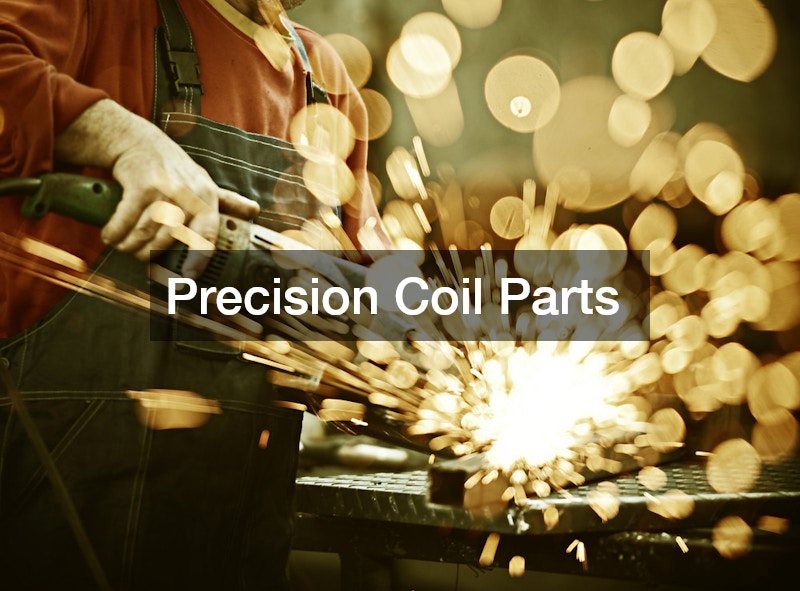As the workforce continues to embrace flexibility and innovation, these non-traditional workshop spaces are becoming increasingly popular. Advances in technology and remote capabilities have enabled many professionals to work in smaller, more dynamic environments that encourage creativity and adaptability. From home-based offices to collaborative hubs, these unconventional workspaces allow individuals to complete tasks with precision and efficiency without the need for bulky equipment or expansive real estate.
Additionally, with the rise of virtual and digital tools, workers no longer require the same physical space to create and produce. For many, technology has helped level the playing field, making it possible to perform jobs remotely or in compact, multifunctional spaces. Furthermore, the demand for sustainable, cost-effective solutions has also driven this shift toward smaller, more resource-efficient workplaces.
This article will delve into the specific roles that thrive outside traditional workshops, highlighting how these workers leverage compact, modern spaces to their advantage. By focusing on adaptability, resourcefulness, and innovation, we can better understand how industries are embracing a new era of workspaces that align with today’s demands. Whether it’s a creative studio in a small apartment or a tech hub operating from a co-working space, these jobs demonstrate that productivity can thrive even in environments far from the typical workshop.
Reliable Car Fixes
The auto repair industry is no stranger to the concept of evolution in workshop spaces. Historically enshrined in large garages or industrial units, today’s auto repair professionals often find themselves operating in smaller, more mobile environments. This shift responds to the growing demand for on-the-go services, where mechanics may service vehicles at the customer’s location. This change not only saves time but also reduces the overhead costs associated with maintaining a large workshop space.
Mobile auto repair units are equipped with essential tools that technicians need to perform various services directly at the customer’s doorstep. Portable diagnostic equipment, toolkits, and specialized repair tools are loaded into vans, making the service both efficient and comprehensive. This approach allows mechanics to offer personalized services and build stronger relationships with clients, proving that flexibility and mobility are now key to success.
As a result, many professionals in the auto repair sector are now focusing on highly tailored services, ensuring that they meet the exact needs of their clients. This has inevitably led to the rise of diversified service options where customers can receive everything from battery replacement to brake servicing without stepping into a traditional workshop space. Adaptability is paramount here, with customer convenience driving business models and operations.
Boosting Internet Speed

The quest to expand broadband access is shaping new paradigms in technology and telecommunication industries. Unlike before, where infrastructure projects required vast physical workshop spaces for installation and maintenance, today’s operations are more about efficiency and technological advancement. Network engineers and technicians are often found working from strategic points located closer to the areas requiring service rather than large central facilities.
Engineers tasked with expanding broadband can now use compact, mobile stations equipped with digital diagnostic tools and wireless technologies. These developments have simplified both deployment and troubleshooting to ensure continuous connectivity. The drive for remote solutions has significantly enhanced flexibility in this field, allowing operations in varied environments from rural communities to urban high-rises.
The dynamic nature of expanding broadband means that teams are not anchored to a single location for extended periods. Instead, they are perpetually on the move, setting up strategic points that allow smooth network enhancement and updated service roll-outs. This changing nature of workflow emphasizes efficiency over space and supports our incessant demand for faster internet speeds by minimizing physical constraints.
Fixing Test Chambers
Environmental chamber repair requires precise skills in maintaining specialized equipment, traditionally undertaken in expansive workshop spaces filled with large machinery. However, advancements in technology now allow technicians to minimize their operational footprint, making repairs with tools that are more compact and technician teams that are smaller but highly skilled.
These technicians operate in environments where flexibility is a vital asset. Many companies have invested in mobile units fitted with advanced tools and remote diagnostic systems, enabling repairs to be conducted promptly and on-site. This approach ensures that businesses experience minimal downtime even in unpredictable conditions.
Increased demand for seamless and rapid service has highlighted the importance of adapting techniques and tools to fit more diverse locations. Professionals in environmental chamber repair are optimizing smaller spaces, often improvising their operations to suit the client’s needs and location-specific constraints, ensuring functionality isn’t sacrificed for compact workshop spaces.
Advanced Fat Removal

Vaser Liposuction represents a revolutionary step in the field of cosmetic surgery, allowing practitioners to operate outside traditional clinical workshop spaces. The procedure utilizes ultrasound technology to break down fat cells, requiring less space than conventional liposuction, which mandates large operating theaters and extensive support facilities.
Instead of relying exclusively on hospitals or clinics, many practitioners now operate from specialized facilities designed with client comfort and safety in mind. Such environments are markedly less clinical, offering privacy and a more pleasant experience for clients, which has proven essential to the patient-centric model of modern cosmetic procedures.
The adoption of minimally invasive techniques not only reduces recovery time but also allows cosmetic practitioners an increased range of operational environments. Doctors in this field can facilitate these procedures in bespoke, fitted-out rooms that prioritize aesthetics and patient relaxation over traditional, sterile clinical workshop spaces.
Modern Dental Care
Cosmetic dentistry has increasingly migrated away from traditional dental clinics to more avant-garde workshop spaces, where ambiance and state-of-the-art technology converge. Modern dental procedures emphasize aesthetics alongside health, requiring sophisticated environments that cater to both the visual and procedural expectations of clients.
Dentists specializing in cosmetic procedures are at the forefront of this transition, implementing technology that allows them to perform comprehensive procedures without the spatial demands of former setups. 3D imaging, advanced dental software, and non-invasive techniques have considerably reduced the need for large operatory rooms, enabling exciting design possibilities within practice locations.
Accessibility and patient convenience are pivotal in modern cosmetic dentistry, driving the evolution of dental workshop spaces. Dentists now focus on creating environments that emphasize comfort, incorporating elements such as relaxing interiors and modern amenities, which cater to a market that values a seamless blend of efficiency and luxury.
Precision Coil Parts

The precision and accuracy required in producing coil springs have seen manufacturers innovate beyond large factory setups. Originally housed in factories with expansive machinery and intense manpower, many coil springs manufacturers are now turning towards solutions that emphasize precision engineering in compact, technological environments.
This shift is fueled by advances in computer-controlled manufacturing processes and the demand for specialized spring designs. Utilizing automated and digital equipment, manufacturers are able to produce high-quality components in more confined workshop spaces, optimizing operational efficiency while maintaining the precision necessary in their products.
Small, versatile production lines equipped with robotics have revolutionized how coil springs are manufactured, allowing companies to quickly adapt designs and produce bespoke solutions tailored to client specifications. This pivot illustrates a broader industry trend focused on agility, reducing workshop space without sacrificing innovation or performance.
Fixing Garage Access
The business of garage door repair has increasingly left its conventional workshop spaces in favor of more compact, versatile settings, including mobile service units equipped with tools designed for on-site repairs. This industry shift responds to the need for prompt service in closer proximity to clients, allowing technicians to address issues swiftly and effectively wherever needed.
Technicians are often equipped with advanced diagnostic tools and parts that enable them to resolve issues ranging from misaligned tracks to malfunctioning openers without the threading constraints of traditional garages. By employing mobile units, repair teams can adapt to various environments, making services both efficient and more accessible.
This emphasis on mobility and customer service has helped garage door repair professionals remain competitive, defying traditional workshop spaces that once dominated the sector. The increased flexibility not only ensures quicker resolution times but also allows for the offer of additional services tailored to varying customer needs, reinforcing a user-centric approach within the industry.
Durable Data Seals

The need for high-performance fiber optic seals has shifted focus from large manufacturing facilities to precision-driven workshop spaces, where quality and innovation take precedence. With telecommunications and data transfer industries requiring increasingly efficient and reliable solutions, manufacturers of fiber optic seals have streamlined operations into more compact, focused environments.
Modern production of these seals involves cutting-edge technologies, including automated assembly lines and precision testing equipment, minimizing the requirement for space previously needed for manually intensive processes. This change ensures manufacturers can meet high standards in product quality within reduced spatial constraints while maintaining their competitive edge.
Smaller workshop spaces facilitate bespoke production processes, allowing manufacturers to rapidly respond to the unique needs of their clients. By focusing on adaptability, fiber optic seal producers have optimized operations to deliver on performance standards, continually enhancing reliability in connectivity solutions essential for today’s interconnected world.
Upgrading Waste Systems
Modern demands for sustainability and efficiency in waste management have transformed septic system replacement jobs into highly technical operations conducted closer to the point of necessity. Rather than relying on extended installations from central workshop spaces, technicians now make use of mobile units fitted with the capabilities for on-site system diagnostics and replacements.
The ability to perform septic system analysis and replacement across varied locations has eradicated the overhead associated with traditional, remote workshop spaces. This approach reduces inconvenience for homeowners and businesses, offering seamless transitions between outdated and upgraded systems, thus minimizing environmental impacts.
This field’s adaptation to compact and mobile settings reflects a commitment to environmentally conscious practices, driving professionals to reconsider both logistics and sustainability. The agility and comprehensive nature of these modern systems are reshaping expectations for waste management processes, aiming to set new benchmarks in the efficient handling of residential and commercial waste solutions.
Choosing Climate Pros
The heating and cooling industry, helmed by HVAC contractors, is a prime example of the transition from traditional workshop spaces to more efficient job site environments. These professionals require tailored solutions without the need for expansive facilities, balancing the demand for expertly installed systems with client convenience and site accessibility.
Equipped with portable tools and optimized for logistical practicality, HVAC contractors can conduct professional installations and repairs from compact mobile units. This modern approach allows them to meet diverse climate control needs across multiple settings, ensuring systems operate optimally regardless of environmental conditions or spatial limitations.
HVAC services have become crucial for business competitiveness, requiring contractors to be highly skilled and adaptable within their working environments. These shifts underline a broader industry emphasis on sustainability and efficiency, circumstantially prioritizing custom HVAC solutions over traditional workshop space approaches, and aligning more closely with clients’ real-world application requirements.
The shift away from traditional workshop spaces is not just a passing trend—it represents a fundamental transformation in the way businesses operate and how professionals engage with their crafts. As digital tools, automation, and remote solutions continue to shape industries, we can expect even more professions to adapt to this model, leveraging efficiency and reducing overhead costs. The flexibility that comes with mobile and compact workspaces allows businesses to reach customers faster, personalize their services, and respond to changing demands with greater agility.
Moreover, this evolution fosters sustainability by reducing the need for large, resource-intensive facilities. Companies that prioritize smaller, mobile, or digital workspaces can minimize energy consumption, optimize space utilization, and lower operational costs, making their business models more sustainable in the long run. Additionally, these changes open up opportunities for entrepreneurs who may not have the resources to invest in expensive real estate but still want to deliver high-quality products and services.
Looking ahead, the fusion of smart technology, artificial intelligence, and automation will likely push this transformation even further. Professions that once relied on large workshops may soon operate entirely remotely or with the help of on-demand spaces, shared facilities, or virtual tools. The future of work is undoubtedly shifting towards adaptability, efficiency, and customer convenience. Those who embrace this transition will position themselves at the forefront of their industries, paving the way for innovative, flexible, and future-ready business models that redefine the concept of workshops altogether.
